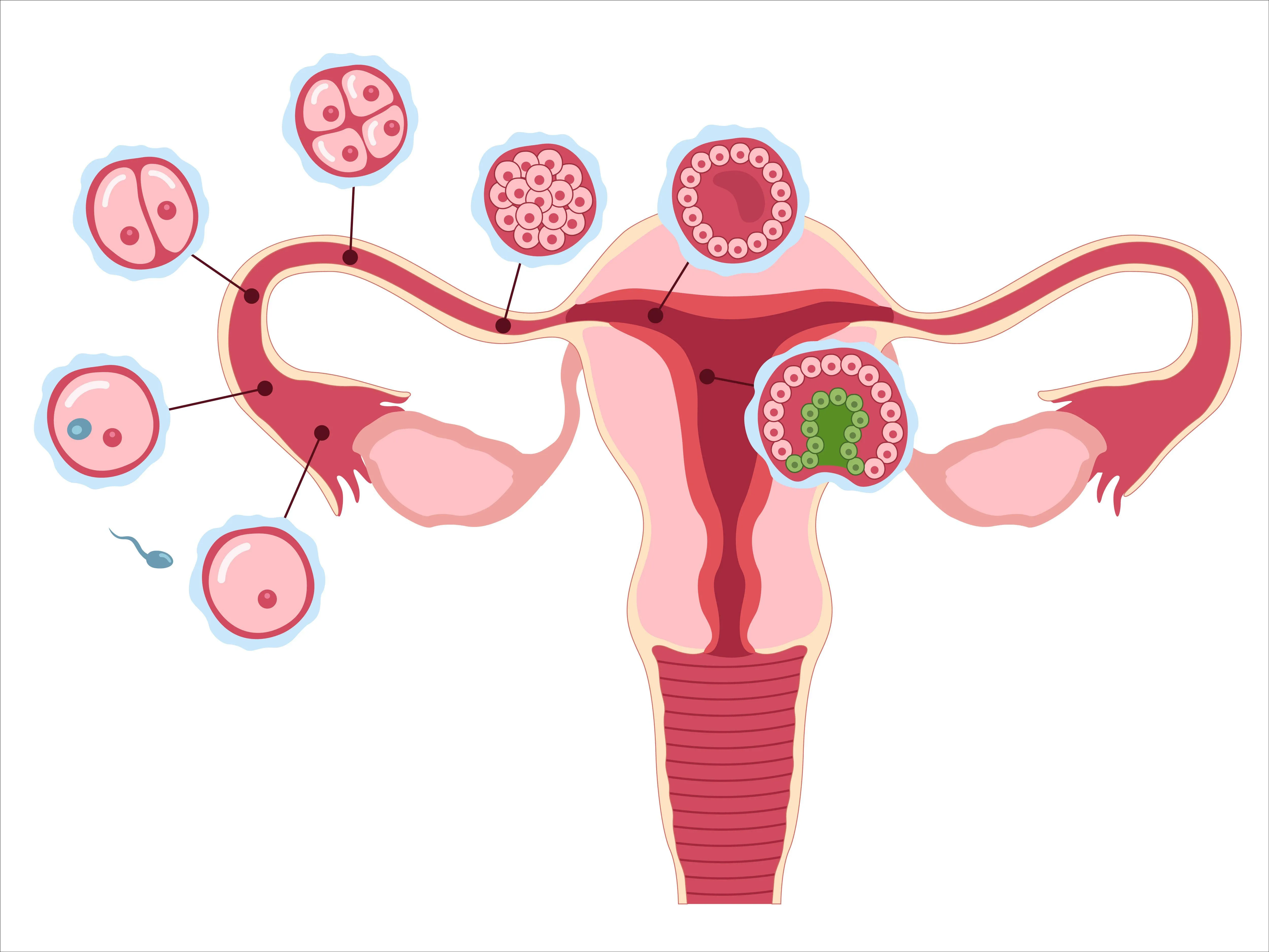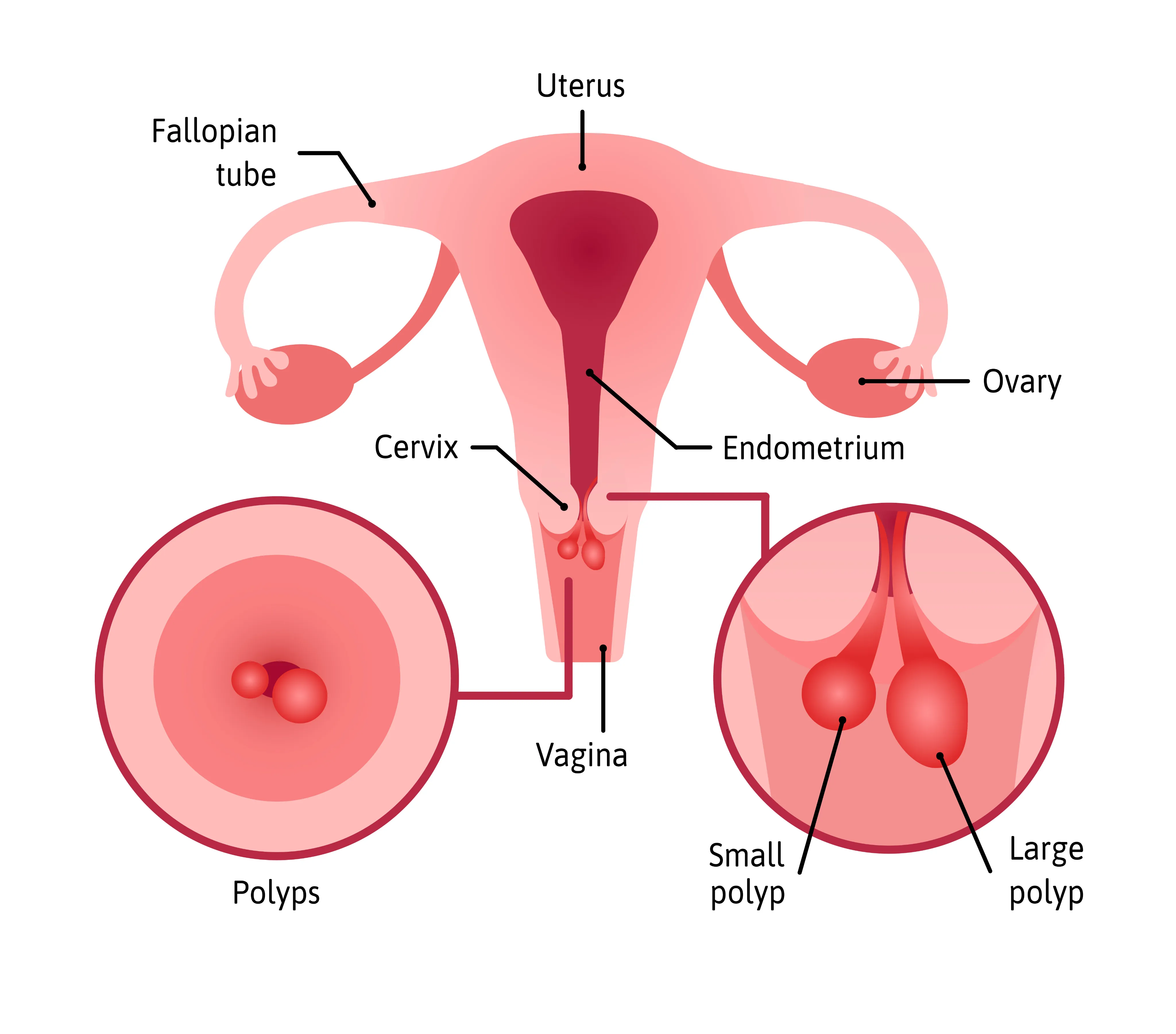For complex Endometriosis and Adenomyosis care, visit LotusEndo.com
Gynecologic Oncology Institute is no longer accepting new general gynecologic oncology patients, and refocusing on endo & adeno advanced treatment.
Transforming Uterine Cancer Treatment: Tailored, Advanced Therapies for Every Stage
Experience Compassionate, Expert Care in Uterine Cancer with Our Personalized, Holistic Approach
Uterine Cancer
On a case-by-case referral basis only, Dr. Steven Vasilev and his team accepts patients for consultation and comprehensive individualized treatment for all types of uterine cancer: endometrial, papillary serous, carcinosarcoma, sarcoma and others. We are widely recognized for state-of-the-art personalized care and provide treatment plans that are tailored to the tumor type, your overall health and specific situation and needs. Initially minimally invasive robotic surgery is offered in most cases, even when the uterine cancer is advanced. We combine highly technical care with a personal touch. This includes integrative cancer-fighting complementary guidance, nutrition and holistic support.

Individualized High-Tech Uterine Cancer Care
Cancer of the uterus is not the same in everyone. In addition to cancer subtypes behaving differently, individuals differ in their ability to fight cancer.
We customize treatment depending upon how early the cancer is, the best treatment options for you and minimizing side effects.
We want you to not only beat your cancer and survive but also to thrive!


About Uterine Cancer
Endometrial cancer is the most common gynecologic cancer in the developed world and is the most common cancer affecting the uterus. It occurs in the inner-most part of the uterus, the endometrium. Symptoms include unusual vaginal bleeding, difficulty or pain with urination, pelvic pain, a mass, abnormal vaginal discharge, pain with sexual intercourse, or unexplained weight loss. However, there are variants of uterine cancer, some of which start in the fibro-muscular part of the uterus (sarcoma).
-
Endometrioid endometrial
-
Papillary serous carcinoma
-
Carcinosarcoma (Mixed Mullerian Tumor)
-
Sarcoma
Major Types of Uterine Cancer
Uterine Cancer Prevention and Detection
Most women with endometrial cancer are post-menopausal at diagnosis. It occurs more frequently in those that are obese, have a history of endometrial hyperplasia or tissue overgrowth, have a history of pelvic radiation, have a history of Lynch Syndrome, start menses before age 12 or have never had children. A history of fertility issues or tamoxifen use (a drug used for breast cancer treatment or prevention) or even hormone replacement may also increase one’s risk. Most endometrial cancers are caused by excess estrogen through excess fat. A very effective way to prevent this type of endometrial cancer is to maintain a normal BMI (body mass index) through diet and exercise. However, the more uncommon but aggressive uterine papillary serous carcinoma can occur in thin patients who have never taken any estrogen supplements.

Uterine Cancer Screening
Uterine cancer does not have any effective screening methods. Early abnormal bleeding usually signals possible pre-cancer and cancer, so that should not be ignored.

Uterine Cancer Diagnosis
Biopsy & Scanning Options
Diagnosis is by endometrial biopsy. Your physician may also order an ultrasound and measure the width of the endometrial stripe or thickness of the uterine wall. A thicker endometrial stripe may indicate reason for a biopsy. A CT scan may also be ordered. A hysteroscopy and dilation and curettage may be done in order to view inside the uterus and take tissue samples for analysis. Most endometrial cancer is defined as having an endometrioid adenocarcinoma histology, or cell type. Based on the histology, the cancer is given a grade, 1-3, one being least aggressive and more behaved looking under the microscope. Additional imaging, such as a PET or CT scans may be ordered to check for spread of disease. Genetic testing is helpful because some endometrial cancers are genetic and may be genetically associated with colon cancer. A biomarker blood test (CA-125), usually used in the management of ovarian cancer, may also be elevated in some people with endometrial cancer.
Uterine Cancer Therapy
Uterine cancer treatment depends a lot on its “stage”. Is the cancer still confined to the uterus or has it spread to other areas like the lymph nodes or distant organs, like the liver or lungs?
Uterine cancer “staging” requires a physical examination, standard X-rays and information from surgery.
The surgery that is usually part of treatment ends up also being part of the diagnosis in terms of what stage your cancer is in. Additional imaging like CT scans and PET scans are often used to help with treatment planning but surgical findings guide the additional therapy recommendations the most.


Uterine Cancer Stages:
Stage I
Cancer has not gone beyond the uterus
Stage II
Cancer is found in the uterus and has also spread to the uterine cervix (lowest part of the uterus)
Stage III
Cancer has metastasized to the lymph nodes or ovaries
Stage IV
Cancer has spread to organs far beyond the pelvic area like the lungs, liver or spleen
Treatment Options for Cancer of the Uterus
The primary treatment in most cases is surgical intervention: a total hysterectomy and BSO (bilateral salpingo-oophorectomies), which include removing the uterus, cervix, ovaries, and fallopian tubes. Based on the surgical pathology, the disease will be classified as a stage I-IV. Depending on the stage, additional treatment may be required including radiation and/or chemotherapy. Most women (75%) only require surgical intervention for a cure. At our Center, you can be assured that we offer minimally invasive surgery to almost all patients. This ensures your rapid recovery without large incisions. When you visit us we discuss all options, including incisions, laparoscopy and robotics. Hormonal therapy for endometrial cancer is an option if the cancer is low grade and if surgery is not an option due to fertility preservation wishes or poor medical condition, as might be the case in old age. For early uterine cancer we almost exclusively use the DaVinci robotic system because it offers superior 3-D magnified optics and wristed instruments, which means delicate precise surgery and faster recovery.

Advanced Uterine Cancer Treatment
Even advanced uterine cancer can be managed with combination therapy, including chemotherapy and so-called targeted “biologicals”. Using molecular analysis (NGS or next-generation sequencing) we are able to find very targeted biological therapies as options in many patients. This will soon replace the current standard chemotherapy which kills normal cells as well as cancer cells. We are part of the rapidly evolving future.
Uterine Cancer Outcomes
Published survival rates are average estimates. Today, for any stage of any cancer, there are survivors. Dr. Vasilev has helped patients with advanced stage cancers of the uterus to thrive as survivors. This is never a guarantee but is the goal, and the details are important.


Uterine/Endometrial Cancer Survivorship
The American Cancer Society keeps a running average and publishes survival rates often. The following are for the endometrial type of uterine cancer, which is the most common type.
Stage I 5-year survival rate ranges from 75-90%
Stage II 5-year survival rate approximates 69%
Stage III rates range from 47-58%, depending on exact findings
Stage IV 5-year survival rate is about 15%
These numbers vary due to the details within each stage and can be worse for aggressive subtypes like papillary serous, carcinosarcoma and sarcoma. Keep in mind that there are survivors in each stage category and that this represents only an average. Uterine cancer therapy has to be highly personalized and that is how we approach your treatment planning at our Center. Starting with unique and highly advanced expertise in minimally invasive robotic surgery to the incorporation of molecular analysis and targeted therapies, the approach at our center is unique, holistic and very patient-centered.
Robotic Surgery Endometrial Cancer Outcomes
Regarding our outcomes with robotic surgery for early to advanced uterine cancer, the following information is very important to understand! Our surgical experience with complicated and re-operative (if you have had prior surgeries) robotics spans almost ten years and, for uterine cancer, the results include a very low rate of conversion to a big incision of <1%. This means the likelihood of waking up with a big incision is very low, which ensures rapid recovery. In some cases, especially with prior surgery, internal scars can make surgery difficult. This is where expertise is especially critical. While nothing is an absolute guarantee, Dr.Vasilev has safely completed many surgeries, robotic and incisional, deemed impossible by others.


Uterine Cancer Survivorship Planning
Beyond treating your cancer we focus on supporting your quality of life, during and after treatment. At our center, we guide you along the path of treatment and beyond. We focus on you as a whole person, including mind, body and spirit, not just on what type of cancer you have or have defeated.

© Steven Vasilev MD | Gynecologic Oncology. All Rights Reserved 2015-2025.
